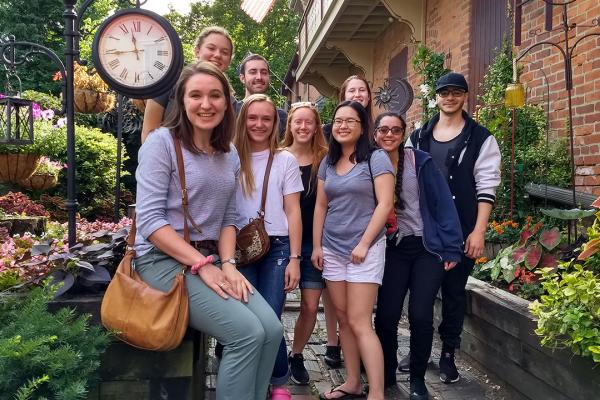
MBI administers a multi-institution summer REU (Research Experiences for Undergraduates) program in the mathematical biosciences each year. The objectives of the program are: (1) to introduce a diverse cohort of undergraduate students to the mathematical biosciences, broadly interpreted to include areas such as biostatistics, bioinformatics, and computational biology, in addition to biologically-inspired mathematical modeling; (2) to encourage students to pursue graduate study in the mathematical biosciences; and (3) to increase the number of students who enter the workforce with training in this field.
REU participants work on projects in areas such as molecular evolution, neuronal oscillatory patterning, cancer genetics, epidemics and vaccination strategies, and animal movement. Participants work individually or in pairs under the guidance of expert mentors to make specific research contributions in these areas, often leading to a peer-reviewed publication and conference presentations. The REU program incorporates various professional and research-skills development activities throughout the summer to help ensure the participants’ success in completing their summer project and to prepare them for graduate study or entering the workforce.
